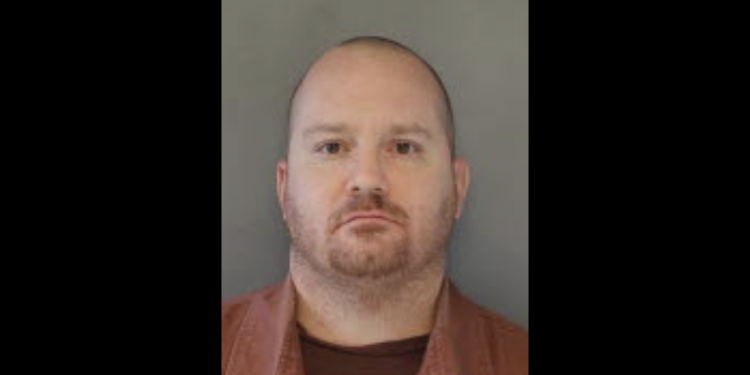CLEARFIELD – A former area man convicted of first-degree murder after three separate trials was given an opportunity for parole Tuesday in Clearfield County Court.
Andrew Callahan, 40, was charged with the murder of his Glendale High School classmate, Micah Pollock, which took place in Pine Run, Beccaria Township in 1997.
Testimony in the trial included information that Callahan, who was 17, had threatened to kill Pollock if he did not stay away from his ex-girlfriend.
The day after shooting Pollock in the back, Callahan returned to the spot in Beccaria Township where he had buried Pollock with pine branches.
He tried to stuff the body in a garbage can but when it did not fit, he tied it to a vehicle and dragged it to a beaver pond where he dumped it.
Trials in 1998, 2007 and 2010, all had the same result and he was sentenced to life in prison without parole.
A Supreme Court of Pennsylvania ruling in June of 2017 gave Callahan another appeal option.
That ruling determined that juveniles convicted of first-degree murder can only be given life without parole sentences in rare cases when “the juvenile offender is permanently incorrigible and thus is unable to be rehabilitated,” according to court documents.
In his post-conviction relief act petition, Callahan also asked for a new trial, which was denied.
A hearing was held in January with testimony from family members and experts to help Senior Judge Richard Masson of Elk and Cameron Counties make a decision on whether Callahan could be, or has been rehabilitated.
On Tuesday, Deputy District Attorney Trudy Lumadue reminded the judge that a key part of rehabilitation is the defendant admitting his responsibility for the crime. Callahan has never done that, she said, because he has continued to stick to the story that the shooting was an accident.
“He never admitted to this,” she said, adding that because of this, there was a question mark about what he will do if released.
Defense attorney, Andrew Shubin, stated that after the previous hearing, there was no question that Callahan had already been rehabilitated.
Callahan asked to read from a lengthy prepared statement in which, he said “I can’t live with this any longer.”
He said words couldn’t express his remorse.
“I caused a great injustice to Micah and his family.”
And then “I have no choice but to bear responsibility.”
He went on to say he is not the same person he was when the crime occurred as he was using drugs and alcohol. He has been sober since he was incarcerated in 1997.
He apologized to Micah’s family, his own family and the Irvona and Coalport communities.
He explained how as a young man he was put into the state prison system and didn’t fully adjust for a few years. A pastor he met along the way transformed him into a Christian and he began to think about others.
“I totally transformed my life.”
He now wants to be of service to others. As he finished, he was almost crying.
“I deserve a chance as an adult,” he said.
Shubin commented that as an attorney, he had advised Callahan all along not to admit to the shooting because of appellate issues.
“There is no question he rehabilitated himself.” Shubin said noting, “he started way before he knew he would have a possibility to get out.”
“Kids’ brains change. He changed.”
Masson went through some of the testimony he had heard in the previous hearing, and listed the amount of information he had reviewed on this case, which had been assigned to multiple judges over the years, before listing his sentence.
He stated that he felt Callahan’s acceptance of responsibility for Micah’s death was sincere.
He sentenced Callahan to serve 30 years to life in prison.
It was noted that Callahan has already served 24 years and five months for which he would be credited.
The sentence is still life, but this gives him a chance at parole, Masson said. Whether he gets out or not, will depend on the parole board.
Later District Attorney Ryan Sayers issued the following statement.
“I am disappointed in the decision by the court today to provide the defendant with an avenue to be released from jail.
“The reason life without parole exists is to protect the community from persons that commit heinous murders, like Callahan did in 1997, and as punishment for taking another person’s life.
“I feel for the family of Micah Pollock because justice was not served at this resentencing.”



